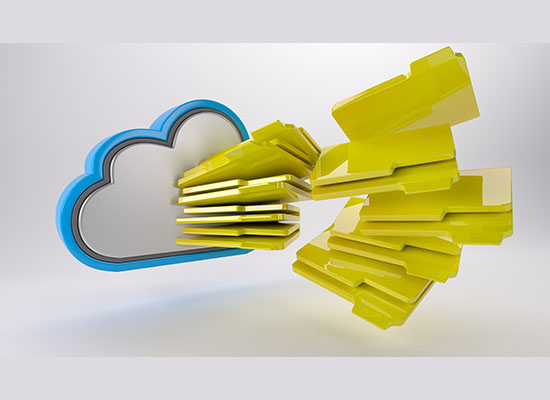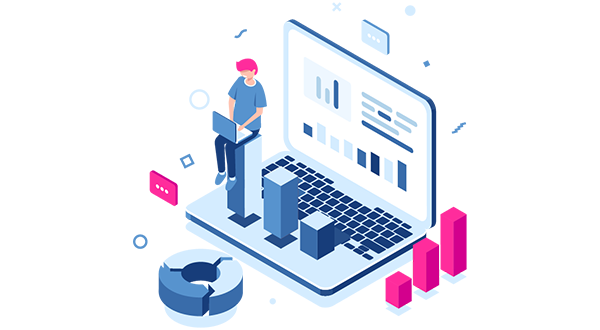

MongoDB to Oracle Migrations with mLogica’s Next-Generation AI-Powered Migration Software

The mLogica Migration Team
Accelerate Your MongoDB to Oracle Migrations with mLogica’s Next-Generation
AI-Powered Migration Software
In recent years, many businesses have adopted NoSQL databases like MongoDB to accelerate application development and manage diverse data types. While NoSQL databases offer certain benefits, they can also present significant challenges, including performance limitations, scalability constraints, security risks, and the need for a reliable, future-proof system. Oracle Database, the market-leading enterprise database since its inception, eliminates these concerns. With Oracle, performance and scalability issues vanish, security risks are mitigated, and customers benefit from a system proven to be future-proof for decades.
Oracle Database excels in managing large-scale operations, effortlessly handling massive transaction volumes and scaling to meet business growth. Its enterprise-level security, featuring robust encryption, access controls, and auditing, is unmatched, making it ideal for industries where data security is non-negotiable. Additionally, Oracle’s unified platform simplifies the management of structured and unstructured data, enabling seamless data integration. It’s no wonder Oracle remains the undisputed leader in the enterprise database market, guiding companies toward long-term IT success.
Key Points to Consider When Moving from MongoDB to Oracle
MongoDB is a document-oriented database, a type of non-relational or NoSQL database that stores information in documents, typically using JSON or BSON formats. Transitioning from MongoDB to Oracle requires careful consideration of factors such as JSON data handling, compatibility with MongoDB’s unique features, and performance optimization. Oracle Database 21c introduced a JSON datatype with an optimized binary storage format called Oracle Simple Object Notation (OSON). OSON is designed to enhance JSON processing in Oracle, delivering significant performance improvements over traditional JSON formats. It integrates seamlessly with Oracle’s systems, supporting standard JSON documents while boosting query speed and update efficiency.
These enhancements benefit JSON applications by providing faster query responses, smoother updates, and reduced storage requirements. Best of all, these improvements are transparent—applications continue to interact with JSON documents as standard text strings, while the database processes them more efficiently in the OSON format. The Oracle Database API for MongoDB further simplifies this transition by enabling applications to interact with JSON document collections in Oracle Database using familiar MongoDB commands, ensuring compatibility and ease of use.
Seamless MongoDB to Oracle Migrations with mLogica
mLogica’s next-generation, AI-powered migration tools make transitioning from MongoDB to Oracle faster and smoother than manual or semi-automated solutions. At mLogica, we’ve developed AI-powered migration software, such as STAR*M, to tackle the challenges of moving from legacy and NoSQL databases to Oracle. These tools address common issues in complex, mission-critical database migrations, ensuring a seamless transition to Oracle Database.
mLogica’s solutions are designed to handle MongoDB workloads effectively within Oracle’s environment, offering enhanced JSON processing and robust support for document-based data. STAR*M automates the migration of document databases to Oracle’s OSON format, translating query languages like MongoDB Query Language (MQL) or SQL variants into Oracle-compatible SQL. Structurally, document databases prioritize schema flexibility, which sacrifices data constraints and validation guarantees enforced by relational databases. This flexibility is ideal for rapidly evolving schemas but becomes less advantageous as schemas stabilize.
Migrating to Oracle’s OSON format enables a hybrid model, combining the flexibility of the OSON datatype with the ability to query and join standard RDBMS tables that enforce stronger data quality guarantees. Oracle’s JSON-relational duality view further simplifies this transition by presenting relational data through a hierarchical lens, minimizing changes to application codebases while moving from flexible JSON schemas to stable RDBMS schemas.
Migrating from MongoDB to Oracle
Customers can migrate their MongoDB databases to Oracle Database using mLogica’s STAR*M migration software, leveraging the Oracle Database API for MongoDB to maintain compatibility with MongoDB-style operations. This API allows applications to interact with JSON document collections in Oracle Database using MongoDB commands, making the transition seamless.
Migration Tools for MongoDB to Oracle Database
Several tools facilitate the migration of MongoDB data to Oracle Database, with mLogica’s solutions enhancing automation and efficiency:
- Oracle Database API for MongoDB: This API enables applications to interact with JSON document collections in Oracle Database using MongoDB commands. It is available as part of Oracle Autonomous Database Serverless, ensuring compatibility with existing MongoDB applications.
- Command-line tools: Tools like mongoexport (to export data from MongoDB to the file system) and mongoimport (to import data into Oracle Database) streamline data migration.
- MongoDB Compass: A GUI-based tool that simplifies importing data from MongoDB document collections into Oracle Database.
- Oracle GoldenGate: Supports online migrations by replicating source data to the target Oracle Database. GoldenGate captures schema and data changes in a log file, applying them to the target database in real-time.
- mLogica’s STAR*M: Automates schema translation, data mapping, and query language conversion, reducing migration time and errors.
mLogica collaborates closely with Oracle to streamline migrations, leveraging automation tools like STAR*M to shorten project timelines and minimize errors. By focusing on the Oracle Database API for MongoDB, mLogica ensures that customers can continue using MongoDB-style operations within Oracle’s robust enterprise environment.
Using mLogica’s STAR*M to Migrate a MongoDB Database to Oracle Database
As a pioneer in heterogeneous migrations, mLogica has successfully migrated thousands of legacy databases to Oracle. STAR*M addresses the complexities of moving MongoDB to Oracle, offering enhanced JSON handling and strong support for MongoDB workloads. mLogica’s end-to-end migration support includes schema translation, data mapping, application code conversion, and integration testing, ensuring a scalable, secure, and future-proof database environment with minimal disruption.
mLogica’s Migration Methodology
Assessments
Using STAR*M, mLogica extracts source code and data definitions, generates exception reports, and conducts a thorough review. The assessment phase involves:
- In-depth Analysis: Examining the document database system, identifying upstream and downstream applications, mapping dependencies, creating an end-to-end migration plan, and assessing risks.
- Categorization by Complexity: Identifying document databases and categorizing them based on size, complexity, suitability for migration, and required changes.
Database Migrations
STAR*M automates the identification of field-value pairs in document databases and generates corresponding mappings in Oracle’s OSON format. It translates query languages like MQL into Oracle SQL, ensuring compatibility.
Data Migrations
mLogica employs traditional tools like Oracle GoldenGate or Informatica, alongside STAR*M’s custom agents, for efficient data extraction and migration tailored to the source and target environments.
Application MQL Code Migrations
STAR*M extracts MQL syntax from application code and converts it to Oracle SQL, enabling seamless integration with the target database.
Testing
mLogica’s comprehensive quality assurance (QA) process includes:
- Unit Testing (UT): Testing individual database units to identify and resolve defects.
- System Integration Testing (SIT): Verifying seamless interaction between migrated components and validating data properties.
- User Acceptance Testing (UAT): Engaging end-users to confirm that migrated programs meet functional requirements.
Go-Live and Post-Migration Support
mLogica supports deployment across development, QA, pre-production, and production environments, offering 24/7 managed services and help desk support post-go-live. An escalation-based defect resolution process ensures prompt resolution of any issues.
Streamline Your MongoDB to Oracle Migration with mLogica’s AI-Powered Solutions
By migrating from MongoDB to Oracle Database with mLogica’s AI-powered tools, organizations can accelerate the process while minimizing risks and downtime. Leveraging the Oracle Database API for MongoDB, mLogica ensures compatibility with existing applications while unlocking Oracle’s performance, security, and scalability benefits. With extensive experience in heterogeneous migrations and a robust methodology, mLogica is a trusted partner for a seamless transition. By automating schema translation, data migration, and code conversion, mLogica reduces errors and project timelines, enabling businesses to focus on growth and innovation within Oracle’s unparalleled enterprise database ecosystem.








































